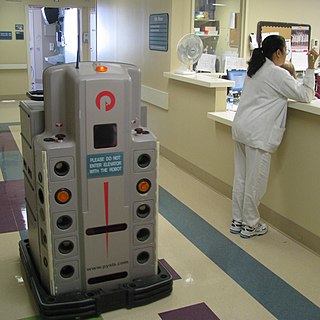
Unemployment, according to the OECD, is the proportion of people above a specified age not being in paid employment or self-employment but currently available for work during the reference period.

An informal economy is the part of any economy that is neither taxed nor monitored by any form of government. Although the informal sector makes up a significant portion of the economies in developing countries, it is sometimes stigmatized as troublesome and unmanageable. However, the informal sector provides critical economic opportunities for the poor and has been expanding rapidly since the 1960s. Integrating the informal economy into the formal sector is an important policy challenge.

Underemployment is the underuse of a worker because their job does not use their skills, offers them too few hours, or leaves the worker idle. It is contrasted with unemployment, where a person lacks a job at all despite wanting one.
Social dialogue is the process whereby social partners negotiate, often in collaboration with the government, to influence the arrangement and development of work-related issues, labour market policies, social protection, taxation or other economic policies. It is a widespread procedure to develop public policies in Western Europe in particular.
Flexicurity is a welfare state model with a pro-active labour market policy. The term was first coined by the social democratic Prime Minister of Denmark Poul Nyrup Rasmussen in the 1990s.
Private sector development (PSD) is a term in the international development industry to refer to a range of strategies for promoting economic growth and reducing poverty in developing countries by building private enterprises. This could be through working with firms directly, with membership organisations to represent them, or through a range of areas of policy and regulation to promote functioning, competitive markets.

One of the most dynamic and fastest growing sectors in the Philippines is the information technology–business process outsourcing (IT-BPO) industry. The industry is composed of eight sub-sectors, namely, knowledge process outsourcing and back offices, animation, call centers, software development, game development, engineering design, and medical transcription. The IT-BPO industry plays a major role in the country's growth and development.

Decent work is employment that "respects the fundamental rights of the human person as well as the rights of workers in terms of conditions of work safety and remuneration. ... respect for the physical and mental integrity of the worker in the exercise of their employment."
Active labour market policies (ALMPs) are government programmes that intervene in the labour market to help the unemployed find work, but also for the underemployed and employees looking for better jobs. In contrast, passive labour market policies involve expenditures on unemployment benefits and early retirement. Historically, labour market policies have developed in response to both market failures and socially/politically unacceptable outcomes within the labor market. Labour market issues include, for instance, the imbalance between labour supply and demand, inadequate income support, shortages of skilled workers, or discrimination against disadvantaged workers.
EQUAL was a Community Initiative within the European Social Fund of the European Union. It concerned “transnational co-operation to promote new means of combating all forms of discrimination and inequalities in connection with the labour market”. It ran from 2001 till 2007 with a budget of some €3 billion of EU resources, matched by a similar sum from national resources.

A job guarantee is an economic policy proposal that aims to create full employment and price stability by having the state promise to hire unemployed workers as an employer of last resort (ELR). It aims to provide a sustainable solution to inflation and unemployment.

Social protection, as defined by the United Nations Research Institute for Social Development, is concerned with preventing, managing, and overcoming situations that adversely affect people's well-being. Social protection consists of policies and programs designed to reduce poverty and vulnerability by promoting efficient labour markets, diminishing people's exposure to risks, and enhancing their capacity to manage economic and social risks, such as unemployment, exclusion, sickness, disability, old age., and enhancing their capacity to manage economic and social risks, such as unemployment, exclusion, sickness, disability, and old age. An emerging approach within social protection frameworks is Adaptive Social Protection, which integrates disaster risk management and climate change adaptation to strengthen resilience against shocks.It is one of the targets of the United Nations Sustainable Development Goal 10 aimed at promoting greater equality.
Workforce development, an American approach to economic development, attempts to enhance a region's economic stability and prosperity by focusing on people rather than businesses. It essentially develops a human-resources strategy. Work-force development has evolved from a problem-focused approach, addressing issues such as low-skilled workers or the need for more employees in a particular industry, to a holistic approach considering participants' many barriers and the overall needs of the region.
The National Competitiveness Report of Armenia (ACR) is an annual publication of EV Consulting and the Economy and Values Research Center that aims to encourage and foster in-depth dialogue and analysis on improving Armenia's competitiveness.

Technological unemployment is the loss of jobs caused by technological change. It is a key type of structural unemployment. Technological change typically includes the introduction of labour-saving "mechanical-muscle" machines or more efficient "mechanical-mind" processes (automation), and humans' role in these processes are minimized. Just as horses were gradually made obsolete as transport by the automobile and as labourer by the tractor, humans' jobs have also been affected throughout modern history. Historical examples include artisan weavers reduced to poverty after the introduction of mechanized looms. Thousands of man-years of work was performed in a matter of hours by the bombe codebreaking machine during World War II. A contemporary example of technological unemployment is the displacement of retail cashiers by self-service tills and cashierless stores.

Youth unemployment is a special case of unemployment with the youth, here being those between 15 and 24 years old.
Statistics on unemployment in India had traditionally been collected, compiled and disseminated once every ten years by the Ministry of Labour and Employment (MLE), primarily from sample studies conducted by the National Sample Survey Office. Other than these 5-year sample studies, India had historically not collected monthly, quarterly or yearly nationwide employment and unemployment statistics on a routine basis. In 2016, the Centre for Monitoring Indian Economy, a non-governmental entity based in Mumbai, started sampling and publishing monthly unemployment in India statistics. Despite having one of the longest working hours, India has one of the lowest workforce productivity levels in the world. Economists often say that due to structural economic problems, India is experiencing jobless economic growth.

The Workforce Innovation and Opportunity Act (WIOA) is a United States public law that replaced the previous Workforce Investment Act of 1998 (WIA) as the primary federal workforce development legislation to bring about increased coordination among federal workforce development and related programs.
Jill Rubery is a Professor of Comparative Employment Systems at Alliance Manchester Business School (AMBS) at the University of Manchester. Her research focuses on comparative analyses of employment systems with a specialisation in gender and labour market structure. She was made a fellow of the British Academy in 2006.
Academic job market in Ethiopia is under development in every higher education institution. The government of Ethiopia is improving the quality of employment for university graduate students to achieve favorable market system and reduce poverty. This, however, obstructed by shortage of skilled manpower as higher education institutions produce graduate students every year.









